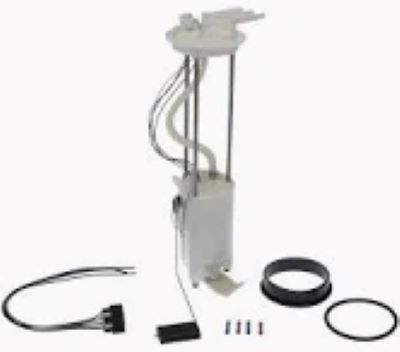The Modern Fuel Pumps work very differently from the older models because they are driven by fuel efficiency, emissions standards or vehicle performance demands. Often Fuel Pumps today run with a variable flow rate and can increase or decrease the amount of fuel delivered at any given moment to adjust for real-time engine needs which are claimed by automakers to be worth up to 10% in fuel economy improvements. This is in contrast to the fixed rate operation of older pumps that treated all driving conditions as running at a steady-state pump which could not be varied by engine speed or load and, therefore would suck-up quite expensive fuel. This improved process helps lower emissions in that it provides an exact fuel-to-air mixture, which is necessary for new environmental requirements to be met.
Modern direct fuel injection (DFI) systems includes High-pressure Fuel Pumps, which can produce pressures as high 2,000 PSI or even more. This intense pressure serves to maximize atomization which in turns allows more even mixing of fuel and air before combustion, leading to cleaner burning. In contrast, the Older Fuel Pumps generated significantly less pressure—typically lower than 100 PSI — making them incompatible with DFI engines that need super accurate injection to attain peak performance. Though automotive engineers counter that the increased-pressure systems account for considerable emissions drops in addition to more horsepower.
Fuel Pump operation is much more complicated now, the on-off mechanical function has been replaced by automatic control of speed via electronic input from an engine control module (ECM) which adjusts fuel delivery based upon vehicle ground speed and throttle position, in a general sense. This makes for a faster responding acceleration, up to 30% in cars with updated ECUs. Minimizing time delays with respect to the fastest possible fuel injection and pressure regulation, Fuel Pumps without electronic regulation faced a distinct disadvantage against electronically regulated systems, resulting in sluggish throttle response or worse stalling under load.

While mechanical pumps are common in many older cars with gas engines, Electric Fuel Pumps have largely taken over the market when it comes to vehicles of today. Electric models improve upon this, lasting 100K miles or more versus the 40-50k that most mechanical pumps last. By bypassing the engine’s RPM to deliver fuel, mechanical pumps were suboptimal for application at low speeds; an electric pump offers improved capacity by providing a consistent rate of flow. A smaller crank is also easier on the engine mechanically, dialed back for reduced maintenance and longer-engine life.
Modern distinctions are featured by High-performance Fuel Pumps for turbocharged and supercharged engines. While these pumps have been created specifically for high-power forced induction setups, their flow rate is 500+lph and they are capable of supporting even the most aggressive e85 tuning. The availability of high-performance options is paramount for vehicles trying to push the envelope in this front, as well. And it has prompted manufacturers to develop more powerful and efficient engines than ever before.
Enhanced materials in the development of modern Fuel Pumps also adds to their resistance. Modern pumps are now manufactured with a mix of corrosion-resistant alloys and advanced polymers that protect against ethanol-blended fuels – which account for more than 10% of gasoline sales in many areas. Historically, Fuel Pumps Produced before the advent of ethanol Can Deteriorate rapidly when coming into contact with Ethanol causing more frequent replacement and higher repair bills. The carryover of optimum performance over time coupled by low costs make Modern Fuel Pumps cost-effective for consumers and more reliable for high-mileage vehicles due in part to the use of corrosion-resistant materials.
These differences highlight the Fuel Pump evolution, and how modern pumps provide vaster operating ranges at higher pressure levels for some applications while also benefiting from advanced electronic controls that can help it last longer. To get more up-to-the-minute Fuel Pump type and also competent repair expertise, you can have a look at this excellent website http://wwwfuelpump-org